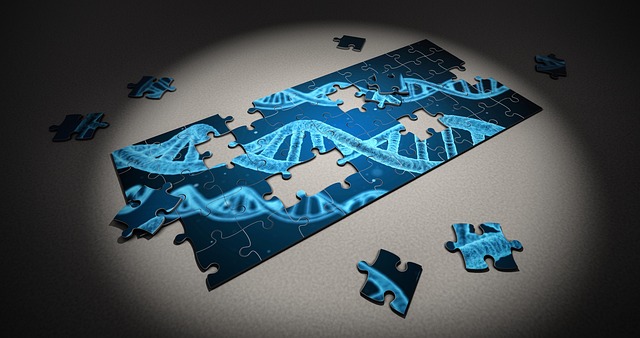Mindfulness refers to a state of being present in the moment without judgment, while awareness refers to a heightened sense of consciousness or understanding.
What is mindfulness?
(Photo by Nick Page on Unsplash )

Mindfulness is a state of being fully present and engaged in the present moment, with an attitude of non-judgmental awareness. It involves intentionally paying attention to one’s thoughts, feelings, bodily sensations, and the surrounding environment, without getting caught up in judgment or reactivity. Mindfulness is often cultivated through various practices, such as meditation, but it can also be integrated into daily activities.
Key elements of mindfulness
Present moment awareness: Mindfulness involves directing one’s attention to the present moment experience, rather than being preoccupied with the past or future. It entails observing and acknowledging thoughts, emotions, and sensations as they arise, without getting carried away by them.
Non-judgmental attitude: Mindfulness encourages a non-judgmental and accepting stance towards one’s experiences. It involves acknowledging and accepting thoughts and emotions without labeling them as good or bad, right or wrong. This attitude fosters a compassionate and curious observation of one’s inner and outer experiences.
Attention and focus: Mindfulness involves consciously directing and sustaining attention on a chosen anchor, such as the breath, bodily sensations, or sounds. This focused attention helps cultivate clarity and concentration, enhancing the ability to stay present and reduce mental distractions.
Acceptance and self-compassion: Mindfulness cultivates an attitude of acceptance towards oneself and one’s experiences. It involves acknowledging and embracing both pleasant and unpleasant sensations, thoughts, and emotions, without trying to change or suppress them. Self-compassion is an important aspect of mindfulness, fostering kindness, understanding, and patience towards oneself.
Benefits of practicing mindfulness
Stress reduction: Mindfulness can help individuals better cope with stress by cultivating awareness and reducing reactivity to stressful situations.
Emotional regulation: Mindfulness enhances emotional resilience, allowing individuals to recognize and respond to emotions in a balanced and constructive manner.
Improved focus and attention: Regular mindfulness practice can strengthen attention and concentration, leading to improved focus and productivity.
Enhanced well-being: Mindfulness has been associated with increased overall well-being, including greater satisfaction with life, improved relationships, and a sense of inner peace.
Physical health benefits: Mindfulness has been linked to various physical health benefits, such as reduced blood pressure, improved sleep quality, and strengthened immune system functioning.
Mindfulness can be practiced through formal meditation sessions, where one dedicates specific time to engage in mindfulness exercises. It can also be integrated into daily life by bringing awareness to routine activities, such as eating, walking, or engaging in conversations.
While mindfulness originates from contemplative traditions, it has gained popularity and recognition in contemporary psychology and therapeutic approaches. It is often used in mindfulness-based interventions, such as mindfulness-based stress reduction (MBSR) and mindfulness-based cognitive therapy (MBCT), to promote well-being and alleviate mental health conditions.
Practicing mindfulness requires patience, consistency, and an open attitude. It is a skill that can be developed and deepened over time, offering a way to cultivate a greater sense of presence, self-awareness, and overall mental and emotional well-being.
What is awareness?
(Image by Arek Socha from Pixabay)

Awareness refers to the state of being conscious, alert, and cognizant of oneself, one’s surroundings, and the events or experiences taking place. It involves the ability to perceive, observe, and comprehend information through the senses, thoughts, emotions, and bodily sensations.
key aspects of awareness:
Consciousness: Awareness involves an active state of consciousness, where one is awake and attentive to the present moment. It encompasses being aware of one’s own existence and having a subjective experience of reality.
Attention and Perception: Awareness relies on attention and perception. It involves directing and focusing attention on specific stimuli or aspects of experience, such as sensory inputs, thoughts, emotions, or external events. It encompasses the ability to perceive and interpret information from the environment and internal processes.
Self-Awareness: Awareness includes the capacity to be aware of oneself as a distinct individual with thoughts, emotions, and a physical presence. Self-awareness allows for introspection, understanding one’s beliefs, values, desires, and recognizing how they influence thoughts, actions, and interactions with others.
Sensory Awareness: Awareness involves the ability to perceive and process sensory information from the environment, such as seeing, hearing, smelling, tasting, and touching. Sensory awareness allows for the interpretation of stimuli and the formation of a subjective experience of reality.
Emotional Awareness: Awareness extends to recognizing and understanding one’s own emotions and the emotions of others. It involves being attuned to emotional states, identifying and labeling emotions, and being able to regulate and respond to them effectively.
Body Awareness: Awareness encompasses the ability to perceive and connect with bodily sensations, including tension, relaxation, pain, and comfort. Body awareness involves recognizing physical sensations and the interplay between the mind and body.
Contextual Awareness: Awareness involves understanding and perceiving the broader context in which one exists. This includes being aware of one’s social, cultural, and environmental surroundings and recognizing the interconnectedness of various factors that influence one’s experiences.
Cultivating awareness can have several benefits
- Enhanced mindfulness and presence in the present moment.
- Improved self-understanding and self-regulation.
- Better decision-making and problem-solving skills.
- Strengthened empathy and interpersonal relationships.
- Reduced reactivity and stress levels.
- Increased overall well-being and quality of life.
Practices such as mindfulness meditation, introspection, reflective journaling, and mindful movement can help develop and deepen awareness. By nurturing awareness, individuals can develop a richer understanding of themselves and their experiences, leading to greater clarity, insight, and the ability to respond to life’s challenges with wisdom and resilience.
Benefits of being mindful and aware
Mindfulness can help you to stay in the moment and be more aware of your thoughts and feelings, while awareness can help you to understand why you’re thinking or feeling certain things.
Both mindfulness and awareness are important tools for managing stress, anxiety, and depression. Mindfulness can help you to cope with difficult emotions by allowing you to sit with them without judgement, while awareness can help you to understand the root cause of your distress.
If you’re looking to start a practice of mindfulness or awareness, there are many resources available online or through apps like Headspace or Calm.com.
The development of awareness requires time and effort, but it can ultimately lead to a profound transformation in our lives. By deepening our understanding of reality, we can learn to let go of our attachments and fears, and find lasting peace and happiness.
Photo by Brett Jordan on Unsplash







